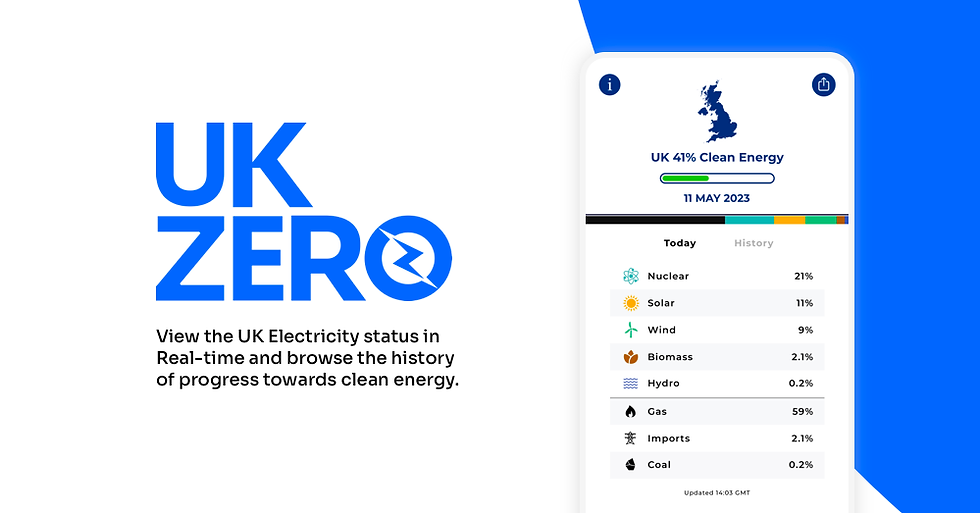Looking at the UK’s energy sources: biomass
- Simon Mosdal

- May 19, 2024
- 2 min read
Updated: Jun 5, 2024
Biomass, organic matter like wood pellets or energy crops, has been a source of renewable energy for centuries. But how does it fit into the UK's modern energy mix, and what are the considerations surrounding its use?
Biomass power plants burn organic materials to generate heat. This heat then creates steam, driving turbines and producing electricity similar to coal or gas-fired plants. The UK uses various biomass sources, including wood pellets imported from abroad and energy crops grown domestically.
If sustainably managed, biomass can be a potentially carbon-neutral energy source. The carbon dioxide released during combustion is theoretically offset by the carbon dioxide absorbed by growing plants used as fuel. Additionally, biomass can use existing power plant infrastructure with some modifications, making it a relatively quick solution for increasing renewable energy generation.
However, biomass's sustainability depends heavily on its source. Deforestation or unsustainable farming practices to grow energy crops can negate the environmental benefits. Biomass combustion also emits air pollutants like nitrogen oxides and particulate matter, impacting air quality. The efficiency of converting biomass to energy can also be lower than that of other renewable sources.
Biomass currently plays a significant role in the UK's energy mix, but its future is uncertain. Concerns about its true sustainability and competition with food production for land might shift the focus towards other renewable sources. However, sustainable biomass production and technology advancements could ensure its continued role in a low-carbon future.
The UK needs to carefully evaluate the environmental impact of biomass sourcing and prioritise sustainable practices to ensure its role in a truly green energy future.
Pros of biomass:
Renewable source of energy.
Can be carbon-neutral if sustainably managed.
Uses existing power plant infrastructure (with modifications).
Cons of biomass:
Emissions of air pollutants during combustion.
Unsustainable practices can negate environmental benefits.
Competition with food production for land.
Lower efficiency compared to other renewable sources.
Join the movement! Download UK Zero, connect with others, and let's work together for a sustainable future.




Comments